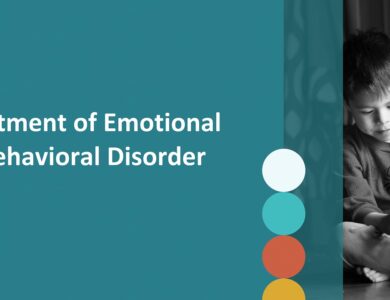
How Important Is Health?
Health is one of the most critical aspects of our lives. As the saying goes, health is wealth. Without good health, we cannot fully enjoy other aspects of life. So how important is health really?
Extremely Vital to Well-Being
Health is extremely vital to our overall well-being. When we have good health, we tend to have more energy, better moods, an improved ability to fight off illness, and can be more productive in work and life. Poor health negatively impacts all of those areas. Being in a constant state of sickness, pain, fatigue, etc. makes it very difficult to function optimally or maintain a good quality of life. So in that sense, health affects every facet of life.
According to the Center for Disease Control (CDC), about 60% of American adults have at least one chronic disease, and 40% have two or more chronic health conditions. Chronic diseases are the leading cause of death and disability in the U.S. Many of these chronic conditions can be prevented or better managed through lifestyle changes to improve health. This just demonstrates how vital our daily health habits and status really are.
Impacts Lifespan
Our health status also directly correlates to lifespan. Those who engage in regular exercise, maintain healthier diets, avoid smoking, and manage health conditions tend to live longer lives. According to a large study published in the British Medical Journal, people with the healthiest lifestyles lived more than a decade longer than those with the least healthy habits. So health clearly impacts length of life significantly.
The World Health Organization (WHO) also reports that 5 of the top 10 causes of death globally are diet and lifestyle related chronic illnesses that could potentially be prevented through improved health habits. This includes heart disease, stroke, diabetes, kidney disease and some cancers. So by focusing on health, many lives could be saved.
Mental Health Is Key Too
While physical health is extremely important, mental health is a critical component of overall health status too. When mental health suffers, all other aspects of health tend to decline too. Those struggling with mental health issues like depression and anxiety often lack motivation for self care, have trouble maintaining social connections or jobs, and can develop substance abuse issues or self harm tendencies as coping mechanisms.
According to the CDC, the percentage of adults struggling with symptoms of anxiety and depression jumped dramatically during 2020, highlighting this growing issue. So focusing on both physical and mental health is imperative. Making lifestyle choices to boost mood naturally can have profound impacts. Connecting with mental health resources when needed is also essential.
Health Affects Loved Ones Too
While each person is responsible for their own health, it also impacts loved ones. Children often model the lifestyles and habits of parents when it comes to diet, exercise, substance use, self care, etc. Spouses and partners are affected when health ailments prevent full contribution with household duties or provide intimacy. Elder parents may end up becoming dependents much sooner when children face disabling health conditions early on. So the ripple effect of poor health spreads beyond just the individual.
Even healthcare costs tend to increase across populations when chronic disease runs rampant due to unhealthy lifestyles. A report by the CDC indicates that 90% of the nation’s $3.8 trillion annual health expenditures are for those with chronic physical and mental health conditions. Most of those costs end up passed along to all in the form of higher insurance premiums and healthcare bills. So health is important collectively too.
Prevention Is Best Medicine
They say that prevention is the best medicine when it comes to health. Stopping illness before it ever develops is far better than trying to manage it later on. Prevention also costs individuals and the healthcare system substantially less over a lifetime. According to the Health Equity Task Force, prevention represents just 3% of all health expenditures currently, even though it could save countless lives and trillions over decades. So health prevention should be a top priority.
Investing in early health education, implementing policies and infrastructure that promote better population health, increasing public health initiatives focused on prevention, improving health equality across all demographics, and expanding access to nutritional food, recreation facilities, smoking cessation resources and the like could dramatically curb downstream costs and effects from preventable illness. An ounce of prevention truly outweighs a pound of cure when it comes to health.
Health Optimizes Life Experience
At the end of the day, good health allows us to fully participate in and enjoy the human life experience. We only get one body and mind over our lifespans. So optimizing how they feel and function through prioritizing health leads to an improved life experience overall. We have more energy to play with kids, travel to bucket list destinations, socialize without limitations, take up new hobbies, and even work into older adulthood doing what we love if health permits. Good health truly optimizes the possibilities life has to offer.
So in summary, health affects every facet of life from productivity to lifespan to quality of life and beyond. It touches those we care about too. Promoting health through both prevention measures and lifestyle choices is the key to living life to the fullest across populations. Health conditions can happen even with good habits, but focusing on what is in our control is so important. Our health impacts pretty much everything about our existence. So staying on top of it through regular checkups, screenings, mental health days and daily maintenance will serve us incredibly well as we navigate this journey called life.
Frequently Asked Questions
How does health impact life?
Health impacts pretty much every area of life. It affects energy levels, mood, immune function, lifespan, productivity, independence, relationships and overall quality of life. Poor health can negatively impact all those areas while good health helps optimize them.
Why is prevention important for health?
Preventing illness before it ever develops is critical because it saves lives and improves population health over decades at a much lower cost than trying to manage advanced diseases down the road. Prevention measures cost a fraction compared to long term treatment too.
How are loved ones impacted by someone’s health?
Loved ones are impacted because they often model the lifestyles and habits around diet, exercise, mental health, etc. Spouses take on more duties when health fails. Healthcare costs tend to rise across populations when chronic diseases run rampant. And caretaker burnout rises when caring for those in poor health.
What are some examples of preventing poor health?
Some prevention examples include early health education for kids, public policies that promote better diets or activity, expanding access to mental health services, investing more in recreation infrastructure, implementing smoking bans and taxes, workplace wellness initiatives and conducting community health screenings.
How can an individual optimize their health?
Individually people can make lifestyle choices to eat nutritious diets higher in plants, exercise regularly, manage stress levels, refrain from substance abuse, get regular checkups for early diagnosis, take time for self care, prioritize sleep and connect socially with others. Building healthy habits is key.
Conclusion
In closing, individuals clearly need to take personal responsibility over the daily choices that affect health over the lifespan. But organizations, communities and policy makers have pivotal roles to play on the prevention side too. Implementing initiatives and infrastructure that provide equal opportunity for health regardless of demographics or geography should be a top priority for society overall. Healthy populations thrive across metrics from productivity to happiness. So keeping health a front and center concern both individually and collectively is critically important for our future. There is still much work needed in this area. But taking small steps each day will compound mightily over time into very tangible health rewards down the road.
Disclaimer: This article provides general information and discussion. Make sure to follow all laws and regulations in your area regarding health policies and talk to a medical professional about the options available.
Mustafa Al Mahmud is a passionate medical writer and health enthusiast. He is excited to share his knowledge and make reliable health information more accessible through Quick Medico. Mustafa aims to write about common diseases, medications, wellness topics, and the latest health research in easy-to-understand language. He believes clear and accurate health communication empowers readers to take charge of their well-being. In his free time, Mustafa enjoys hiking, cooking, and spending time with his family.



